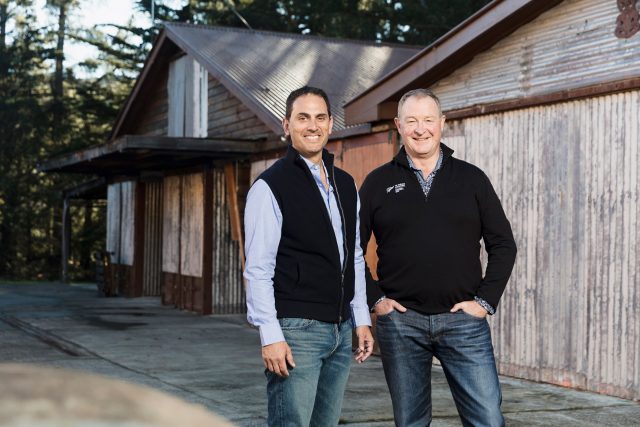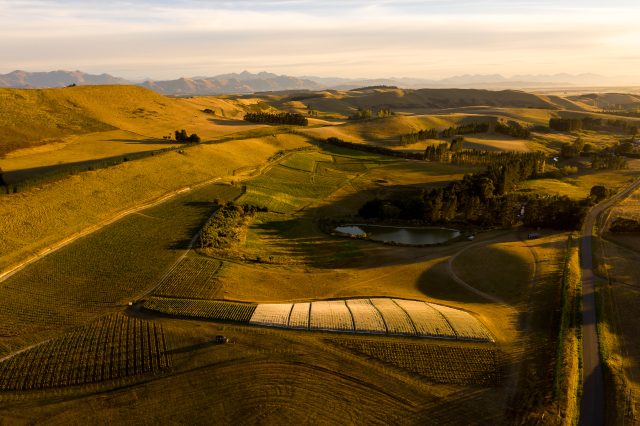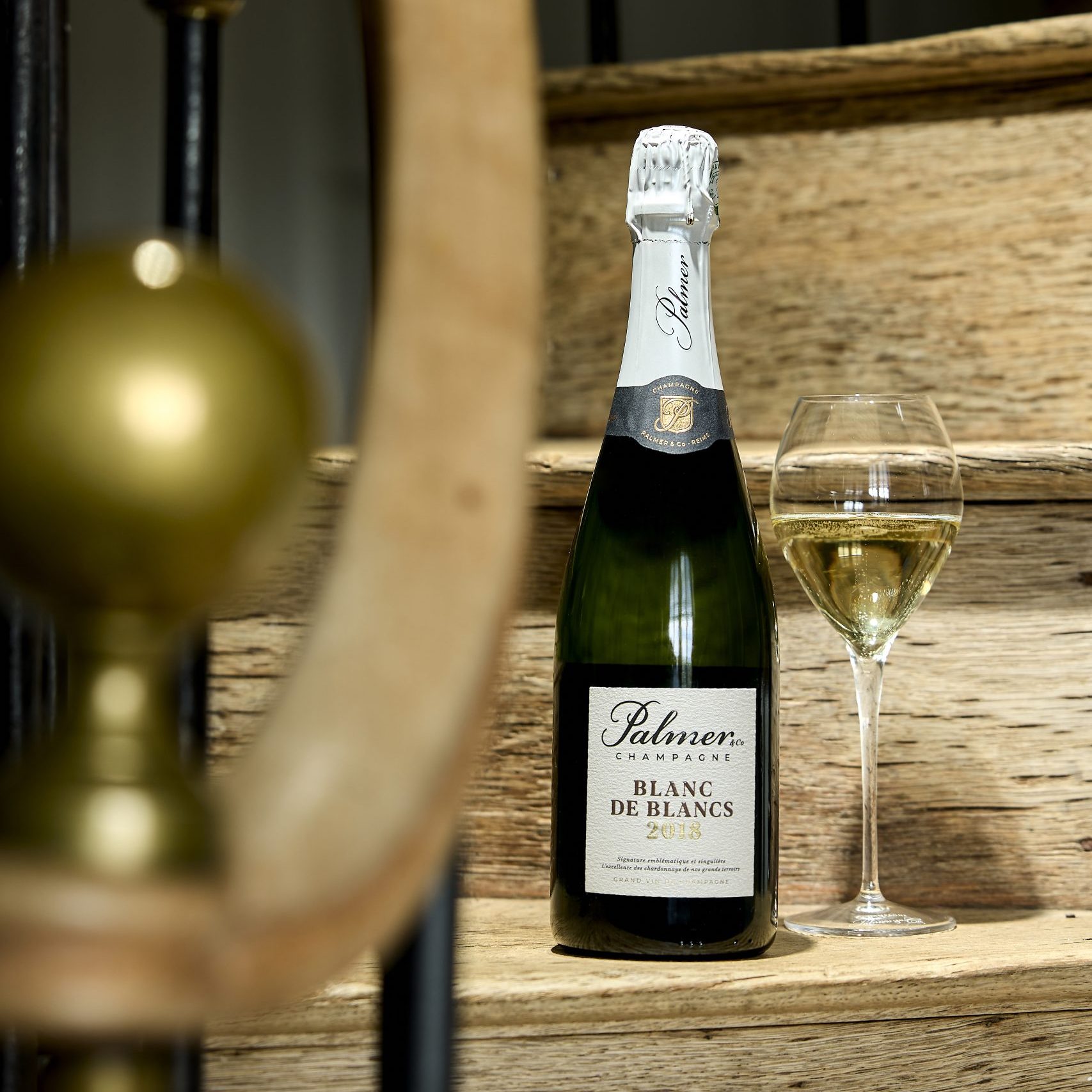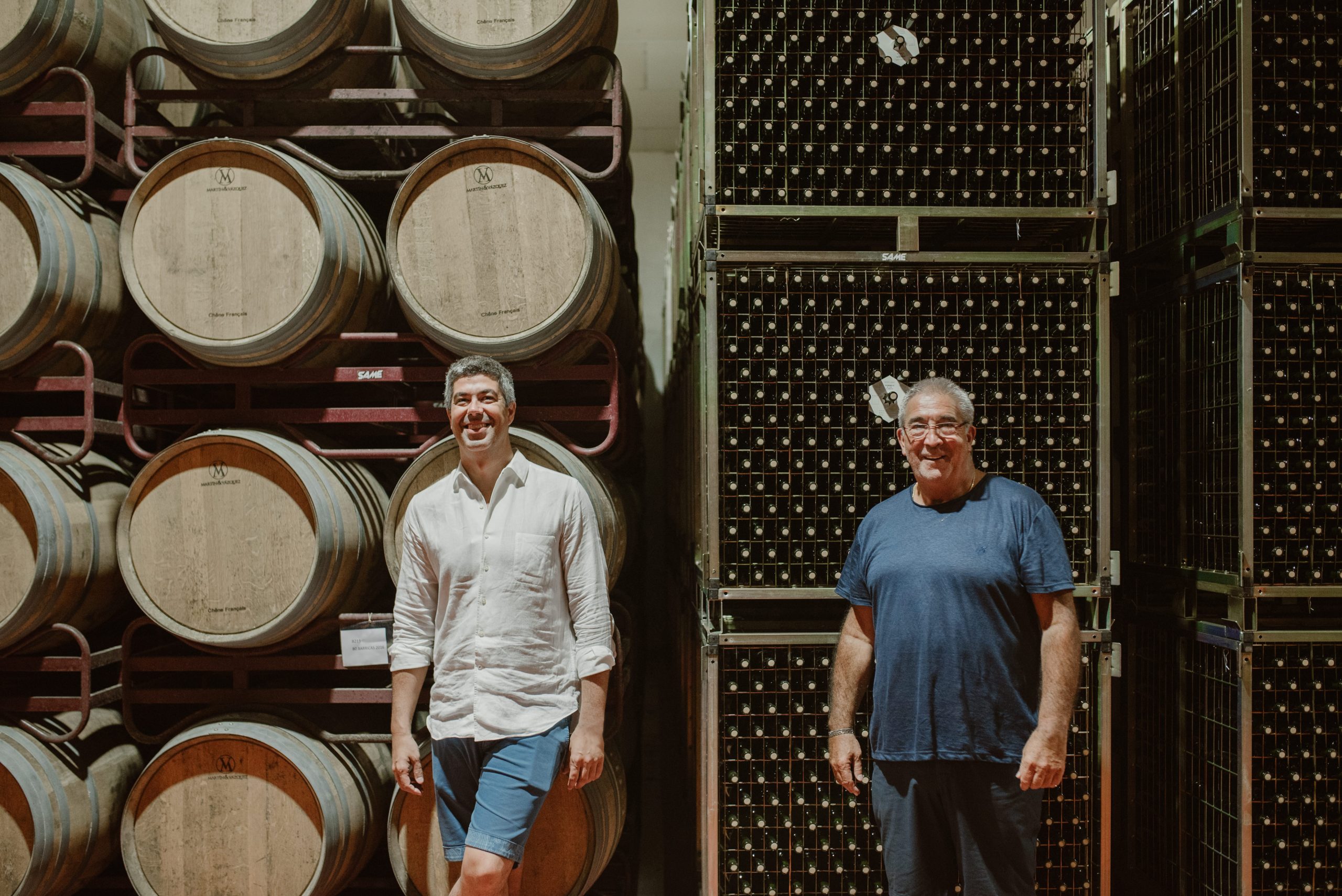Pyramid Valley: ‘If we’re known for too many things, we’ll never be known’
Richard Woodard speaks with Steve Smith MW, co-owner of New Zealand producer Pyramid Valley, about how North Canterbury is capable of producing such pronounced variations in its Pinot Noirs and Chardonnays.

“This isn’t for the faint-hearted,” says Steve Smith MW of Pyramid Valley, the New Zealand cool-climate Chardonnay and Pinot Noir producer he co-owns with American billionaire investor Brian Sheth.
Smith isn’t joking: since the pair acquired the Waikari farm in North Canterbury from Mike and Claudia Weersing in 2017, they’ve had one vintage wiped out by frost (2021), and two more (2018 and 2019) wrecked by a combination of hail, rain and disease. A tough start for a project that has the bold ambition of becoming known as “one of the world’s great
Chardonnay and Pinot Noir producers”.
And 2020? Well, the vineyard and the weather behaved themselves – but then along came a global pandemic. “The day we picked the Angel Flower Pinot Noir was the first day of lockdown,” recalls Smith. “I wasn’t able to go and do what I normally do, which is create chaos with our winemakers. Mind you, I think they were quite happy about that.”
Nonetheless, 2020 – overseen by estate manager and winemaker Huw Kinch – represents, for Smith, “a real barometer of where Pyramid Valley could be in the future”. It’s the first time that the Botanical Collection wines – two Chardonnays and two Pinot Noirs, from neighbouring but contrasting plots – have been made on-site, in the way that Smith wanted them to be made, and from a “normal” vintage.
Notions of normality in such a marginal viticultural location are relative. The two Chardonnays, called Lion’s Tooth and Field of Fire after weeds growing in the biodynamically cultivated plots, took two years to complete their alcoholic and malolactic fermentations in barrel (in fact, Field of Fire never quite finished malo). When the pH of the juice is below 3 (“I’ve never seen that before,” says Smith), natural yeasts can struggle to get the job done. The wines are wildly different, from the exuberant grapefruit of Field of Fire to the altogether softer and calmer Lion’s Tooth, which is remarkable, given that the vines are clonally identical and located only 120 metres apart. “The Field of Fire is more vigorous, has more clay and is more sheltered,” says Smith. “It provides this high-impact, quite dramatic Chardonnay. The Lion’s Tooth is more calcareous, slightly drier, more exposed, and has a slightly riper fruit spectrum and softer acidity.”
The contrasts, recognised in Pyramid Valley’s mission to pursue “clarity of place”, extend to the Pinots which, in an apparent example of nominative determinism, are called Angel Flower and Earth Smoke: the former ethereal with great purity of fruit, the latter more savoury, with black pepper and a smoky tea edge.
How does Smith explain such pronounced variations? He believes that, in cool climates, even apparently trivial differences in soil and aspect are exaggerated. He also believes that the wines illustrate the particular strengths of New Zealand in general, and of North Canterbury in particular.
For the former, he cites as key factors moderate temperatures (helped by the surrounding ocean), good relative humidity and high sunlight/UV – along with the country’s relatively young geology.
And North Canterbury? For Smith, it has the unique (in New Zealand) combination of proximity to the ocean (25 kilometres away) and to the mountains, located as it is in the foothills of the Southern Alps, only a couple of ridges away from peaks that have snow on them all year round.
Partner Content

“I always describe North Canterbury as having this bristling energy to it,” says Smith. “The air from the mountains makes the mornings cool. In the afternoon, it’s the ocean that brings the cool air… There’s a lot of cool-climate claims made, but the North Canterbury region is absolutely on the button when it comes to what cool-climate might mean.”
On the button it may be, but this remains a risky place to make wine if you’re expecting consistent results. “It’s really, really hard to develop a good wine business here,” admits Smith. “It has to be super-high-end [the Botanical Collection wines are priced at £82 in the UK] and, in terms of risk management, you need to support it with another property.” For Pyramid Valley, that means the Lowburn Ferry vineyard Smith and Sheth acquired in Central Otago in 2018, renaming it Manata Estate. From the 2021 vintage, Manata will join the Botanical Collection with Snake’s Tongue Pinot Noir (named after the blue borage or viper’s bugloss growing in the vineyard). Which is just as well, considering the wipe-out that year in North Canterbury.
Risk management also means having another company to help pay the bills – the Smith & Sheth négoce business, bottling wines under the Cru label – and a broader range of Pyramid Valley wines sitting underneath the Botanical Collection. Smith has slimmed the roster down from the Weersing era, introducing a Pastures range of what he calls “village wines” from owned vineyards, selected growers and parcels in North Canterbury and Central Otago. Meanwhile, the Colours line-up covers a rosé, an orange wine (already sold out for 2021) and an aromatic white blend dubbed Sauvignon+. The rationalisation of the Pyramid Valley wine offer was, says Smith, “driven by the fact that, if we’re known for too many things, we’ll never be known”. But that doesn’t necessarily mean no more new wines in the future.
Beyond Snake’s Tongue from Manata Estate, there’s a high-end Sauvignon Blanc project in partnership with the Weaver family in the Waihopai Valley plus, in the longer term, the potential of newly planted vines both in Waikari and Manata. These, Smith believes, could be even better than the original plantings.
And, just maybe, a little fizz too. Smith doesn’t think Chardonnay will work at Waikari for sparkling, because the pH would be too low, but he is more optimistic about the prospects for Pinot Noir, particularly in really cool years, when parts of the Earth Smoke and Angel Flower plots might struggle to achieve full ripeness.
The first experiment from Angel Flower was conducted in 2022, but it’s very early days – at the moment, it’s just a vin clair or base wine. “We don’t know where that’s going to go,” says Smith. “But it wouldn’t surprise me if, 20 years down the track, Pyramid Valley had a good sparkling wine programme.”
Pyramid Valley wines are represented in the UK by Louis Latour UK.
To read about Pyramid Valley’s use of technology to “fingerprint” terroir, click here.
Related news
Castel Group leadership coup escalates
For the twelfth day of Christmas...
Zuccardi Valle de Uco: textured, unique and revolutionary wines




